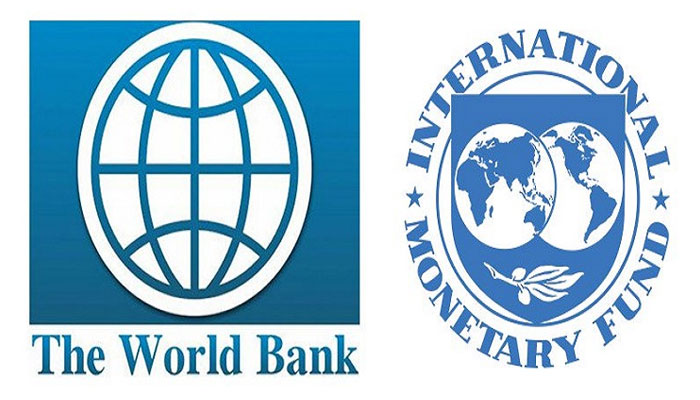Bilateral debt: Islamabad does not require major rescheduling
ISLAMABAD: The Breton Wood Institutions (BWIs) such as the IMF and World Bank are so far non committal for providing any debt relief to poor countries.
All multilateral creditors such as the IMF, WB and ADB had come forward in any way to help Islamabad by providing loan packages through diverting the existing resource envelop or raising additional resources except the Islamic Development Bank, which so far preferred to remain silent over issuing any additional loan or grants to Pakistan in the aftermath of this deadly virus.
Only G20 countries have so far announced debt relief that is insignificant in case of Pakistan because Islamabad does not require major rescheduling on account of its bilateral debt both from the Paris Club countries as well as non Paris Club countries. The Paris Club had already rescheduled Pakistan’s bilateral debt in 2002-3 for 25 to 30 years when Islamabad stood with the US in the war against terror.
The non Paris Club countries into the fold of G20 included China and Saudi Arabia and Pakistan had given in writing to the IMF that all of bilateral loans from both these countries would be rolled over during the Fund program period of three years.
Pakistan’s major portion of external debt is owed against multilateral creditors such as the IMF, WB and ADB as well as IDB.
When the IMF’s MD was asked about debt relief issue for poor countries in Washington on Friday, she replied "let me start by stressing how important the decision taken yesterday by the G20 countries with the strong participation of everyone about more traditional and emerging donors, how important this decision is to go to a standstill of official bilateral creditors to benefit the low-income countries. We all endorse, we welcome this achievement."
She said: “Of course, there are other countries that are under the burden of debt that don’t fall in this category, and both the World Bank and the IMF are committed to look into debt sustainability issues on a country-by-country basis. See what more can be done to lift up countries’ capabilities to deal with the crisis and to ease that burden.” She said there are three things in this package for middle-income countries.
One, the Short-term Liquidity Line, it is a very useful, very timely new tool in the toolbox of the IMF. It allows quick access to liquidity at the time when many countries are experiencing problems. And that is also a way to get funding without bearing the high cost that a precautionary line would carry for countries and without locking in IMF resources on a larger than necessary scale.
Secondly, in the emergency financing, everybody is eligible, and we do have middle-income countries reaching out to the Fund they are in the pool of those that are the 102 coming to the Fund for immediate assistance. And thirdly, we are very cautious of the importance to be available for countries that might decide to expand their own buffers on the basis of tapping into IMF precautionary resources.
-
 All You Need To Know Guide To Rosacea
All You Need To Know Guide To Rosacea -
 Princess Diana's Brother 'handed Over' Althorp House To Marion And Her Family
Princess Diana's Brother 'handed Over' Althorp House To Marion And Her Family -
 Trump Mobile T1 Phone Resurfaces With New Specs, Higher Price
Trump Mobile T1 Phone Resurfaces With New Specs, Higher Price -
 Factory Explosion In North China Leaves Eight Dead
Factory Explosion In North China Leaves Eight Dead -
 Blac Chyna Opens Up About Her Kids: ‘Disturb Their Inner Child'
Blac Chyna Opens Up About Her Kids: ‘Disturb Their Inner Child' -
 Winter Olympics 2026: Milan Protestors Rally Against The Games As Environmentally, Economically ‘unsustainable’
Winter Olympics 2026: Milan Protestors Rally Against The Games As Environmentally, Economically ‘unsustainable’ -
 How Long Is The Super Bowl? Average Game Time And Halftime Show Explained
How Long Is The Super Bowl? Average Game Time And Halftime Show Explained -
 Natasha Bure Makes Stunning Confession About Her Marriage To Bradley Steven Perry
Natasha Bure Makes Stunning Confession About Her Marriage To Bradley Steven Perry -
 ChatGPT Caricature Prompts Are Going Viral. Here’s List You Must Try
ChatGPT Caricature Prompts Are Going Viral. Here’s List You Must Try -
 James Pearce Jr. Arrested In Florida After Alleged Domestic Dispute, Falcons Respond
James Pearce Jr. Arrested In Florida After Alleged Domestic Dispute, Falcons Respond -
 Cavaliers Vs Kings: James Harden Shines Late In Cleveland Debut Win
Cavaliers Vs Kings: James Harden Shines Late In Cleveland Debut Win -
 2026 Winter Olympics Snowboarding: Su Yiming Wins Bronze And Completes Medal Set
2026 Winter Olympics Snowboarding: Su Yiming Wins Bronze And Completes Medal Set -
 Trump Hosts Honduran President Nasry Asfura At Mar-a-Lago To Discuss Trade, Security
Trump Hosts Honduran President Nasry Asfura At Mar-a-Lago To Discuss Trade, Security -
 Cuba-Canada Travel Advisory Raises Concerns As Visitor Numbers Decline
Cuba-Canada Travel Advisory Raises Concerns As Visitor Numbers Decline -
 Anthropic Buys 'Super Bowl' Ads To Slam OpenAI’s ChatGPT Ad Strategy
Anthropic Buys 'Super Bowl' Ads To Slam OpenAI’s ChatGPT Ad Strategy -
 Prevent Cancer With These Simple Lifestyle Changes
Prevent Cancer With These Simple Lifestyle Changes




